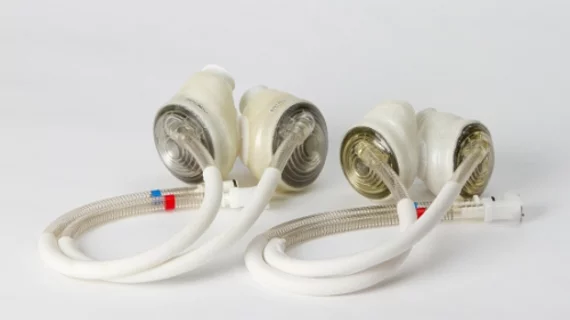SynCardia defends product after FDA warning about high mortality, stroke risk
Less than two weeks after the FDA sent a warning letter to cardiologists about high mortality and stroke rates associated with SynCardia Systems’ Companion 2 (C2) Driver System, the company has published a response saying pre-implant risk factors were responsible for those outcomes.
The C2 Driver System activates SynCardia’s temporary Total Artificial Heart (TAH-t), which serves as a bridge to transplant for heart failure patients and fully takes over the heart’s blood-pumping duties. But in a post-approval study, the second-generation C2 Driver System was associated with higher patient mortality rates at three months (34.5 percent versus 22.5 percent) and six months (40 percent versus 25.8 percent) compared to the first-generation Circulatory Support System Console. Also, stroke rates associated with the second-generation driver were more than triple those of the CSS Console at three months (26.5 percent versus 7.9 percent).
“We recommend that you carefully consider these mortality and stroke results from the TAH-t post-approval study when making treatment decisions, and discuss the risks and benefits of the C2 Driver System with patients,” stated the FDA letter, which was signed by William Maisel, MD, MPH, chief medical officer of the agency’s Center for Devices and Radiological Health.
In his response, SynCardia president and CEO Michael Garippa stressed that the FDA’s letter doesn’t constitute a recall, meaning hospitals can continue using the C2 Driver without restrictions.
Garippa said upon multivariable analysis neither driver system significantly impacted mortality or cerebrovascular accidents (CVAs) such as strokes. Rather, pre-implant factors such as age, dialysis, recurrent stroke and low left ventricular ejection fractions played a role—which Garippa said was supported by the fact that most adverse events happened in the first three months rather than later on.
“We stand behind the C2 Driver as the hospital driver used to support SynCardia TAH-t patients,” he wrote in the letter to SynCardia’s clinical partners. “As required by FDA, a summary of the results of Phase I of our PAS (post-approval study) will be added to product labeling, and surveillance of our products will continue in Phase II of our PAS.
“We look forward to collaborating with FDA on study design improvements for Phase II, during which we will scrutinize patient pre-implant condition in more detail.”

